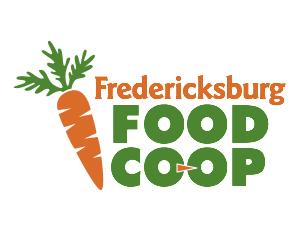Fredericksburg Food Cooperative Merits Support

by the editorial staff of the Free-Lance Star
March 16, 2016
Given the region's growing support of farmers markets, community-supported agriculture and the philosophy that locally grown food is in so many ways better than the alternative, a local food cooperative would seem to be a natural, year-round extension of that.
Last fall, a group of residents founded the Fredericksburg Food Cooperative. Because a solid membership base is crucial for a co-op’s success, the group commissioned a survey to find out what people think of the idea and whether they would support it. Nearly half of those polled — 45 percent — said they liked the idea and would pay $200 for a lifetime membership, thus becoming a part owner of the operation. For the co-op’s founders, the promise of such support is welcome news.
There is a lot to like about the idea of a ready supply of locally grown food. People feel like they have a better idea of what they’re getting than when they buy produce from parts unknown. They know they’re supporting local farmers, and they know that it’s more energy efficient and less polluting to transport goods from the next county than from across the country.
For a group of area residents to recognize this and act on it is indeed admirable. It reflects a willingness to make the commitment necessary required for the co-op idea to be successful.
Like any entrepreneurial effort, a leap of faith is required both by the founders and charter members. For people to say they would pay $200 to join isn’t the same as sitting down to write a check for $200, especially when they’re told that it could be as long as five years before any physical store actually exists. And the co-op is counting on at least 1,000 people, some 200 a year, to do just that. There are 60 members so far.
Commissioning the survey suggests the co-op board is ready to do its homework as it embarks on its mission. The co-op is looking closely at the Friendly City co-op in Harrisonburg, which has become a thriving concern after being founded in 2006, opening a store in 2011 and expanding in 2015. Its success is probably owed in part to the city’s rural surroundings, the many farms that continue to operate nearby, and even the large Mennonite population for whom self-sufficiency is a way of life that they’re willing to share with others in the community.
Perhaps the Fredericksburg co-op can tap into the popularity of the local farmers markets and the network of farm-to-table CSAs to learn exactly what produce and other locally made products people around here historically buy.
Is there enough non-growing season production, such as the availability of greenhouse and hydroponically grown produce? Gauging the interest of this area’s farmers—those whose land continues to sprout crops rather than houses—will also be key to the co-op’s success.
Without a doubt, the idea of a local food co-op merits the support of area residents. Its future will truly depend on the laws of supply and demand: There must be a strong and steady demand for local food that will encourage local producers to supply quality products that keeps people coming back for more.
But before that, there must be enough residents with enough patience to sow a $200 seed that will need to germinate for a while before it’s ready to harvest.







